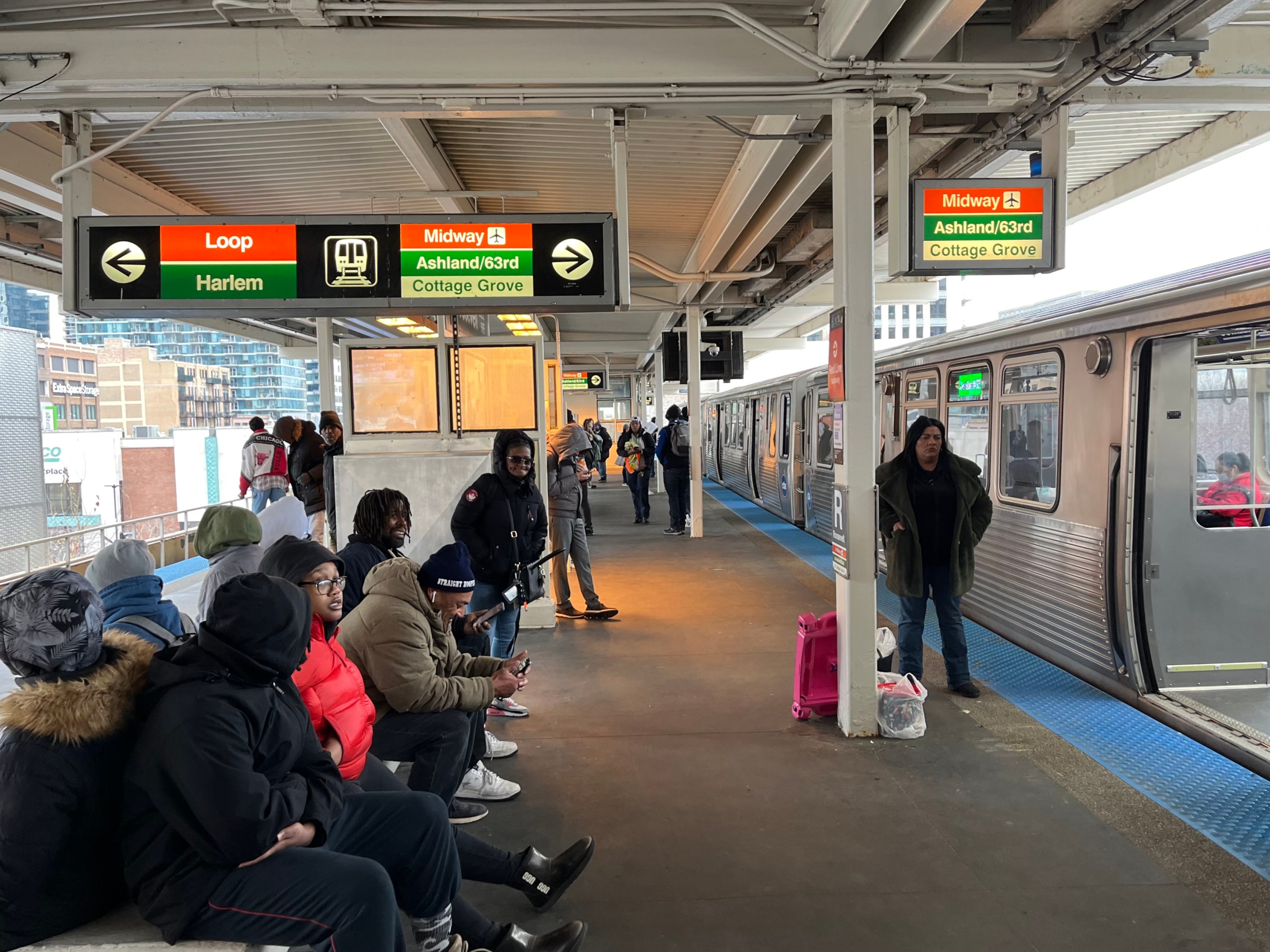
In January the Chicago Transit Authority announced that surveys they’ve been doing throughout the year revealed that customer satisfaction increased in 2023. Following the launch of the CTA’s Meeting the Moment plan back in August 2022, there have been six quarterly surveys. The most recent of these took place last October and November. Across all six surveys, riders' perception of key performance indicators for bus and rail service has shown measurable improvement, though the satisfaction rates have not yet reached pre-COVID levels.
“These surveys, which we have been doing every quarter since summer 2022, show that we’re making measurable progress in many areas,” said the CTA's embattled President Dorval R. Carter, Jr. in a statement. “But clearly there is more work we need to do. I’m absolutely committed to that—our work is not done, and we are focused on further improving the experience for all of our customers.”
According to survey respondents, the top factors that would make them choose to ride the CTA more are more frequent and reliable service, and more accurate arrival information for buses, and boosting service reliability by realigning scheduled service to the available workforce. A CTA press release also stated that the agency has made “significant updates” to its bus and train trackers while also working to boost reliability by realigning scheduled service to the available workforce.
However, the above information has been called into question by some public transportation advocates. Caroline Pavlecic of the grassroots group Commuters Take Action (CTAction) said her organization still supports the improvements outlined by Meeting the Moment. But she added that the plan is still missing a timeline or key performance indicators to ensure that it’s being successful. CTAction doesn’t believe that any of the five pillars from the plan have been fulfilled. Thet also say there have been very few software improvements to the transit trackers.
“The decreased number of 'ghost' buses and trains [theoretical runs that appear on trackers but never show up] can be largely attributed to CTA’s schedule cuts (or self-proclaimed 'optimizations'), which aligned schedules more closely with the available workforce," Pavlecic said. “To achieve better tracker accuracy, the CTA needs to either have nearly perfect schedule adherence (which it’s far from doing), or invest in re-engineering the tracker to be more data-driven.”
The CTA also said that since the summer of 2022, bus customers have reported service frequency (58 percent satisfied, a 17 percent increase), reliability of bus service (54 percent satisfied, up 10 percent), and accuracy of bus tracker information (57 percent satisfied, a 12 percent increase). Accuracy of real-time arrival information for trains has also increased (73 percent, up 11 percent). Pavlecic said that while those metrics have improved, that still leaves almost half of respondents not satisfied in most areas, and while it’s impossible to please everyone, CTAction thinks Chicagoans deserve better than that.
Another area in which the CTA has reported an increase in customer satisfaction is safety. Satisfaction with personal security at the train station was 60 percent satisfied (a 13 percent increase) and personal security on the train was 49 percent satisfied (up seven percent). While Pavlecic said CTAction thinks it’s great that passengers feel safer on trains, there's obviously still room for improvement.
“Reducing headways means riders are not waiting around as long and there are more staff eyes on CTA property, meaning fewer opportunities for safety issues to arise,” Pavlecic said. “CTA should also implement a text-for-safety system, where riders can discreetly report safety concerns on the system. Most common issues such as smoking can be handled by CTA staff, while more serious issues like crimes in progress or person with a weapon calls can be routed to the Chicago Police Department.”
Julia Gerasimenko, advocacy manager at the Active Transportation Alliance, brought up something else to consider about the CTA’s surveys. While she admits she’s no expert in survey creation, she says the surveys offered by the CTA don’t tend to be very open ended. For example, when it comes to safety, Gerasimenko said the surveys tend to offer only one kind of solution, which is increasing security and police presence aboard trains.
“We've been advocating for several years now for a transit ambassador program and we're also supportive of bringing back conductors, like some of the operator unions have been calling for,” said Gerasimenko. “And along with introducing more folks who actually represent the CTA, and not contracted private security firms or the police department, folks who are actually informed on the system of the CTA, [we'd like to see] more of a customer service presence and more of a social worker presence. Conflict management or crisis resolution background would go a long way to helping more people feel safe and that's not usually something that's like presented on these types of surveys are asked about.”
Along with discussing the importance of asking customers open ended questions, Gerasimenko said it would be interesting to survey the operators themselves. “It also matters how they are experiencing the system.” She also argued that the CTA seems very interested in quantifying satisfaction. While Gerasimenko said that’s important, she also believes that it’s important to capture stories that can’t necessarily be measured with a number.

Did you appreciate this post? Please consider making a tax-deductible donation to help Streetsblog Chicago keep publishing through 2025. Thank you.





